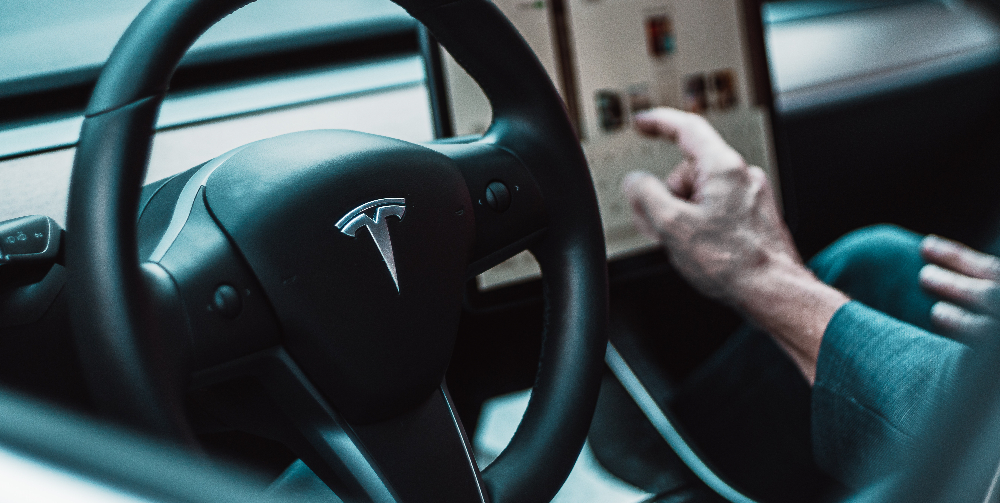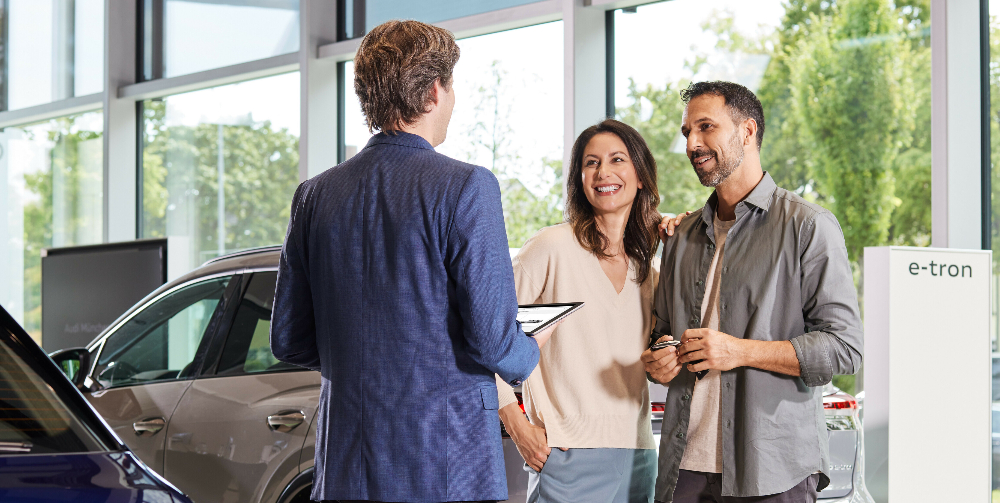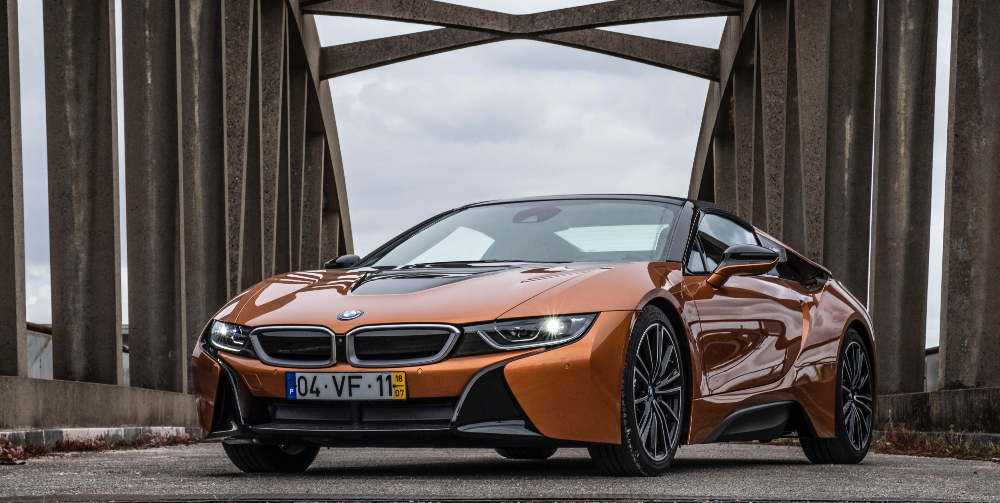The electric vehicle (EV) industry is divided into two major markets—mass-market vehicles and luxury vehicles.
Consumers are interested in the potential of electric vehicles, especially as inflation and global events affect fuel prices.
Environmental concerns also drive interest in the technology. However, despite high-interest levels, the adoption of EVs has been sluggish, indicating there are some challenges that still need to be addressed before the technology will become more popular.
In this blog we’re exploring key considerations for luxury car brands selling electric vehicles to ensure they engage and persuade consumers.
Accelerate portfolio upgrade
Electric vehicles are becoming increasingly popular in the automotive industry as they are set to phase out ICE vehicles in years to come.
This means luxury car brands must think beyond the ‘product’ and consider the other potential offerings of the vehicle. For example, how will this vehicle impact the customer’s life for the better? What positive changes will it have?
To be successful, you have to create a link between the luxury vehicle being bought and the person who is buying it so that it becomes an integral part of their life, rather than an expensive piece of metal.
On top of this, luxury car brands need to position themselves as being ‘service providers’ rather than just ‘vehicle manufacturers’ as this gives customers trust and reassurance that they can rely on you for the long-run, whether that’s needing an upgrade or any electrical maintenance works.
Highlight technology and innovation
Potential buyers in the luxury segment are not merely seeking a means of transportation; they want an immersive and technologically advanced experience.
Therefore, having a sound understanding and effective communication of the vehicle’s technological capabilities is key.
Luxury EVs boast state-of-the-art features, ranging from advanced driver-assistance systems, to AI-driven user interfaces. Emphasising these technological features not only showcases the brand’s commitment to innovation but also positions the vehicle as a symbol of progress and sophistication.
For example, inside the BMW i17 you’ll find a 31.3-inch 8K theater screen, complete with inbuilt Amazon Fire TV, a HDMI input for any games consoles and a 36-speaker Bowers & Wilkins surround sound system.
There’s also no need to open the door yourself thanks to the electrically opening and closing doors that welcome you. And if that’s not enough, small screens mounted on each door are used to control the heating, cooling and massaging seat functions, while the front passenger seat folds into the front footwell to allow the one behind to fully recline. It’s the ultimate luxury electric vehicle.
It’s imperative your sales team can confidently talk about features such as this to instill confidence in potential buyers, assuring them that their investment is worthwhile.
This becomes not just a selling point, but a fundamental part of selling luxury electric vehicles, setting them apart in a market where affluent customers have the budget to invest in something more advanced.

Consider a direct to consumer model
Luxury electric vehicle sales are undergoing a transformation, where personalised and tailored experiences are key, particularly among affluent consumers.
Selling luxury electric vehicles directly to consumers is a crucial strategy in marketing.
An example of this approach is Tesla. Steering away from the conventional dealership model adopted by many automakers, Tesla has established a global network of company-owned showrooms and galleries, strategically positioned in urban centers.
Tesla’s adoption of a direct-to-consumer model extends beyond just selling vehicles; it reflects a strategy aimed at improving both the pace of product development and the overall customer buying experience.
By assuming ownership of the sales channel, Tesla reduces potential conflicts of interest commonly encountered in traditional car dealerships. Customers engaging with Tesla’s showrooms and galleries exclusively interact with Tesla-employed sales and service staff, eliminating intermediaries and ensuring a seamless and brand-centric purchasing journey.
Redefine ‘luxury’
Many of the traditional associations with luxury in the automotive industry have become outdated.
This includes:
- The idea that exclusivity can only be tied to the business elite
- Flashy logos and conspicuous branding, as modern consumers, especially in younger demographics, often prefer more understated branding
- The purchasing experience involving exclusive dealerships and a certain level of inaccessibility. Contemporary consumers, including luxury buyers, increasingly appreciate convenience and online interactions
Consequently, luxury car brands must reconsider their brand identity.
This involves preserving their core values while embracing a refreshed perspective that resonates with contemporary themes like the preferences of the younger generation, the digital era, and a growing commitment to sustainability.
By doing so, luxury car manufacturers can redefine what luxury means in the context of electric vehicles, aligning their brands with evolving consumer expectations.
This adaptation not only preserves the brand’s heritage but also positions it as relevant in an ever-changing automotive landscape.
Understand your audience (it might not be who you think)
What you might assume is the typical luxury car buyer, often associated with a mature demographic and specific lifestyle choices, may no longer be true.
The audience for luxury electric cars is more diverse and dynamic than ever before.
With the growing emphasis on sustainability, technological innovation, and a forward-thinking mindset, the consumer base extends beyond the ‘traditional luxury market.’ Younger generations and environmentally conscious individuals are emerging as significant players in the luxury electric car market.
Therefore, successful sales strategies need to adapt by tailoring marketing approaches to resonate with a broader audience, including those who may be new to the luxury car segment. This involves emphasising the ecological benefits, cutting-edge technology, and the unique experience offered by luxury electric vehicles.
By recognising and connecting with this diverse audience, car manufacturers can not only expand their market reach but also redefine the narrative of luxury in the context of electric mobility.

Speak with confidence
When it comes to selling luxury electric cars, speaking with confidence is an essential element that can significantly influence the buyer’s perception and decision-making process.
Confidence exudes professionalism, trustworthiness, and a deep understanding of the product, all of which are crucial factors when dealing with a discerning clientele in the luxury segment.
This includes:
- Product knowledge: You must have a thorough understanding of the luxury electric vehicle being sold such as the specifications, features, and technological advancements of the car.
- Environmental and technological expertise: You need to be able to articulate how the vehicle aligns with sustainability goals and integrates state-of-the-art technology as this improves the perceived value of the product.
- Handling objections: Luxury car buyers often have specific concerns or anxieties. Whether it’s related to range anxiety, or the overall performance of electric vehicles, a confident sales approach involves providing accurate, well-researched information.
- Customisation and personalisation: Luxury customers often seek a personalised buying experience. Confidence in discussing customisation options, detailing available features, and understanding the customer’s unique preferences contributes to a seamless and satisfying purchasing journey.
- Body language and communication: Beyond verbal communication, non-verbal cues play a significant role. Maintaining eye contact, using assertive body language, and speaking with a clear and steady voice all contribute to projecting confidence.
Address range anxiety
Range anxiety, the concern about the limited distance an electric vehicle can travel on a single charge, has been a persistent challenge in the adoption of electric cars.
Luxury electric car sales professionals play a crucial role in alleviating these concerns by providing accurate information about the vehicle’s range capabilities to ease the buyers concerns.
Firstly, it’s essential to educate buyers about the advancements in battery technology that have significantly extended the range of modern luxury electric cars. Highlighting the continuous innovation in battery efficiency and performance helps mitigate outdated perceptions of limited electric vehicle range.
Secondly, emphasising the extensive charging infrastructure is crucial. Luxury electric car manufacturers often invest in creating a network of fast-charging stations, making long-distance travel more convenient for their customers. By showcasing the accessibility of charging points and the ease of integrating charging into daily routines, sales professionals can dispel these concerns.
Furthermore, the customisation of driving modes and energy consumption features in luxury electric cars allows users to optimise their driving experience for efficiency. Sales representatives should confidently explain how these features empower drivers to maximise their vehicle’s range according to their preferences and needs.
Use video marketing
As mentioned above, anxiety is a huge contributing factor as to why people are reluctant to buy a luxury electric car. Whether it’s anxiety around the distance the car can drive, there are lots of reasons why people are hesitant to buy an EV compared to a traditional ICE vehicle.
This is where video marketing can be a highly effective tool to build trust with customers and to show them that there is nothing to fear when it comes to purchasing an EV. Whilst it’s natural for them to be cautious, especially if they’ve never driven an EV before, there are lots of advantages.
Whilst writing a blog or a press release about the launch of a new electrical vehicle is definitely worthwhile, this should be supported by a video marketing campaign to visually show people what the car has to offer.
A video also gives you the chance to address any concerns as you could compile the most frequently asked questions that customers usually have about EV’s to help alleviate any initial concerns.
By seeing the car and getting up close and personal with its features and functionality, customers are more likely to feel relaxed and encouraged to make the purchase.
The Art of Selling Luxury Electric Vehicles: Key Considerations
When it comes to selling luxury electric vehicles, you need to be prepared to diversify your existing sales strategies by taking the above points into consideration.
This allows you to engage customers who might be reluctant to make the switch from traditional ICE vehicles to electric vehicles as they need to be confident that they’re making the right purchase.
Especially when it’s a luxury electric vehicle as these will be positioned at a higher price point so you’re expecting the customer to part with even more of their money. However, by training your sales team to speak with confidence, to effectively showcase the car’s features through video marketing, and by addressing range anxiety you can start alleviating these concerns.
At JBA, we work directly with clients to stay ahead of any changes in the automotive industry, including the shift towards electric vehicles. We don’t advocate out-of-the-box solutions, as we listen to what your team needs and then develop tailored solutions to suit. To find out more, get in touch with our team.
